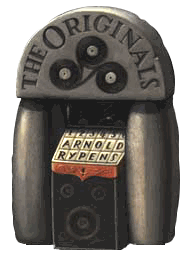CHANT DE GUERRE DE L'ARMEE DU RHIN
Created on 26/11/2007Latest update on 17/11/2023
Artist: Sieur De Dietrich
Author: Claude-Joseph Rouget de Lisle
Year: 1792
Written in one night, 24/25 April 1792, shortly after France's declaration of war against Austria and inspired by the first lines of a drafting poster in Strasbourg: "Aux armes, citoyens, l'étendard de la guerre est déployé". The mayor of Strasbourg deplored there was no patriotic hymn at hand, so Captain Rouget de Lisle, with his reputation as being a poet and musician, was ordered to start composing on the spot. He wrote it while the Prusian army held his own troops in a trap, hence the call for patriotism against 'barbaric foreign invaders cutting the throats of our sons and bystanders' and to 'wet French soil with the unclean blood of the enemy'. With the ink still wet, that very same mayor (De Dietrich) tried the song out in public, providing energy beyond belief. Soon it was first published in Marseille and started spreading from there, hence it's ultimate title. The Musée de la Marseillaise in Marseille has the oldest recording, from 1895 in New York, along with 600 different performances. The Peruvian national hymn (Somos libres, seáqmoslo siempre) holds a piece of the Marseillaise (1821).
Covers:
- 1792:
Député Mireur [two months after Strasbourg, on a banquet in Marseille as Chant de Guerre aux Armées des frontières sur l'air de Sargines (an opera by Delayrac in 1788); published shortly afterwards in Marseille and distributed among 500 volunteers of that city marching towards Paris]
- 1792:
Chéron [in the Opéra de Paris as Marche des Marseillais; French national hymn as La Marseillaise since 1795 by decrete of 26 Messidor de l'année III, following a victory in Savoie; considered to be subversive during the Empire and the Restauration, again symbol of unity since 1879]
- 1831:
Jean Baptiste Vauthier [as La Marseillaise des Belges]
- 1871:
Rosa Bordas [on the barricades of la Commune]
- 1908:
- 1917:
- 1946:
- 1967:
Beatles [intro All You Need Is Love]
- 1972:
- 1978:
Serge Gainsbourg [as Aux Armes Etcaetera; in '81 Gainsbourg bought one of the two existing original manuscripts of the 'Marsaillaise' for 135.000 FF; the second refrain is not written out, instead it reads: Aux armes et caetera...; in his second Gainsbourg book Parcours Gainsbourg (Epo - '17) author Rudolf Hecke comes up with a second coincidence: Lucien Ginsburg was discovered (and changed his stage name) in cabaret Milord l'Arsouille, n°5, Rue de Beaujolais in the 1st arrondissement in Paris, located in the same building where in 1792 the 'Marseillaise' was first performed in public]
- 1997:
Yannick Noah & Urban Tribu [as Oh Rêve]
- 2000:
Antoine Capella [in cleaned up version with peaceful and brotherly verses instead of the barbaric language in the original Marseillaise]
- 2007:
Yves Leterme [honestly convinced he's singing the Brabançonne, interviewed by Christophe Deborsu on his way to the Te Deum; Belgian blooper of the century]
That it was written in one night supports the theory Rouget de Lisle used an existing melody, in this case: a 'hit of the day'! He more or less copied the melody of Stances sur la calomnie at the beginning of Esther, an oratorium by Jean-Baptiste Grisons, who was choir leader in Saint-Omer between 1775 and 1787. Esther was at least five years older than the Marseillaise. Besides, if you listen to the Second Movement of W.A. Mozart's 25th Piano Concerto, there's the opening notes of The Marseillaise twice (after 1:30 and 6:58). Mozart died in 1791. The oldest inspiration for De Lisle, Grisons and Mozart may have been Piemontese violinist and composer Giovanni Battista Viotti's Tema e Variazioni in Do Maggiore dating from 1781.


